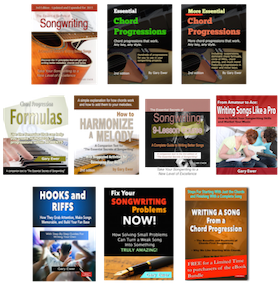The term one-hit wonder, in the realm of music, refers to a performer that manages to make the charts only once in their career. The actual definition is complex, but suffice it to say that it typically refers to a performer or band that makes one appearance on the Billboard Hot 100 chart, and no other appearances. Less frequently, that song itself is sometimes referred to as a one-hit wonder.
We don’t tend to look kindly on one-hit wonders. It’s seen as being the ultimate descriptor of a group’s lack of consistency: they hit the charts once, but couldn’t figure out how they got there, so never appeared again.
 In fact, there are many reasons why a group or performer might only hit the charts once. Their music may be excellent, but clearly not written to overtly appeal to the general top-40 crowd. With his one top-40 hit, “All Along the Watchtower,” Jimi Hendrix is — by some definitions at least — a one-hit wonder, but we would never reasonably use the term to describe him, such is the consistent quality of his music.
In fact, there are many reasons why a group or performer might only hit the charts once. Their music may be excellent, but clearly not written to overtly appeal to the general top-40 crowd. With his one top-40 hit, “All Along the Watchtower,” Jimi Hendrix is — by some definitions at least — a one-hit wonder, but we would never reasonably use the term to describe him, such is the consistent quality of his music.
It’s that word “consistent” that I find myself thinking about today. Consistency is probably the most important quality to which a songwriter can and should aspire.
What are you doing to ensure consistency in your songwriting technique? Trying to write every day is an important part of building songwriting technique, but that may not be enough. I’m fond, readers of this blog may know, of reminding musicians that doing something over and over may simply be reinforcing errors and/or misconceptions.
So while writing lots of songs is a good start, you need to be building on your songwriting technique. So how do you do that?
Here are some suggestions for making sure that, with every song you write, you improve your abilities to consistently write better music.
- Read what other musicians have written about their songwriting process. It helps to know what others do, and a simple web search will reveal many great articles. Songwriters aren’t specifically teachers, so you’ll often need to read and pick up advice “between the lines.” Eric Clapton’s interview on the GUITARWORLD website is a great example.
- Study songwriting. You learn a lot from each and every song you write, but at times it helps to stop writing songs and do some exercises. I have a short free online course that includes descriptions of concepts and then some songwriting activities that will help to enhance your technique and improve your consistency as a composer.
- Analyze each song you write. But be careful: some songwriters make the mistake of equating analysis with finding out what’s wrong. Some songs just work, and you should be happy with that. For every success you have, try to figure out what makes it so good. For every song that seems to be lacking somehow, try to find out what can be done to make it better. Listening, taking notes, verbalizing what you are feeling… these are all part of making bad songs better and becoming more consistent.
- Play your songs for others. It is powerfully effective to play your song for an audience. They’ll give you an immediate reaction. Most singer-songwriters can tell, from the first 2 seconds of the applause, if the song is truly effective. Getting your songs out there in the public takes courage, but it’s an important part of improving, and avoiding the negative aspects of isolationism.
- Get advice from pro songwriters. This one is tricky, because you don’t want to send your music unsolicited to your songwriting hero. They don’t want that, and you don’t want the feeling you’ll get when they ignore you. But local songwriting circles can be a good way to start playing your music for others, and getting the kind of supportive, respectful feedback you’ll benefit from. As you likely know, many will build a circle around a visiting professional songwriter, and you’ll reap the benefits.
 Written by Gary Ewer. Follow Gary on Twitter
Written by Gary Ewer. Follow Gary on Twitter
 “The Essential Secrets of Songwriting” eBook bundle shows you every aspect of what makes good music work. Become consistently excellent!
“The Essential Secrets of Songwriting” eBook bundle shows you every aspect of what makes good music work. Become consistently excellent!










